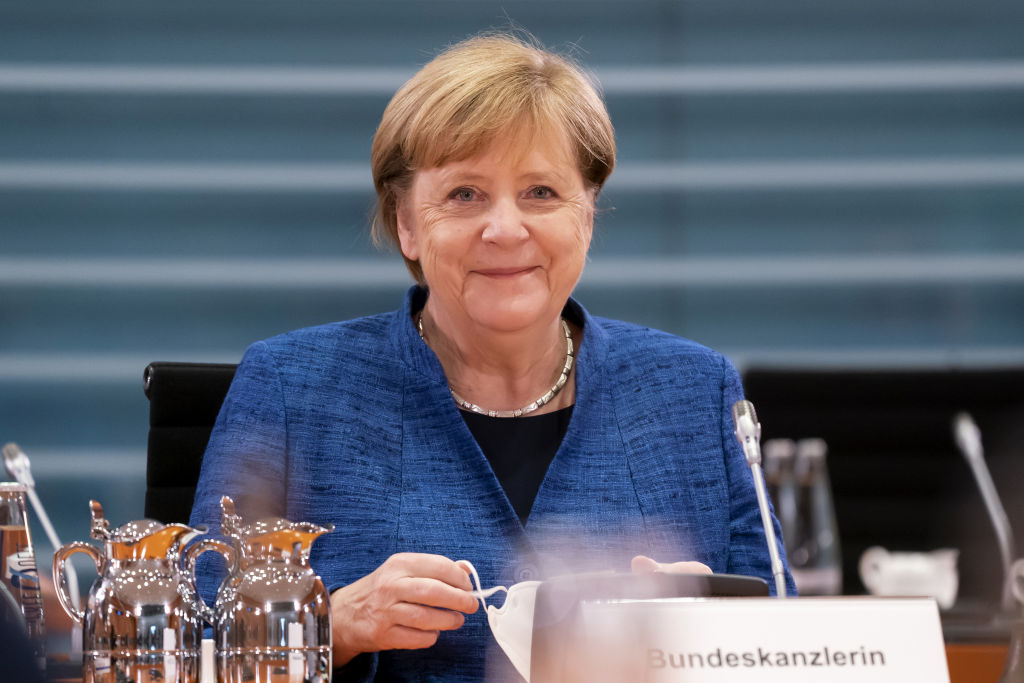Remember how Washington’s foreign policy establishment and their media echo chamber bashed the “isolationist” President Donald Trump for abusing, humiliating and making life miserable for our close European allies, in the process obliterating the “liberal international order”?
Remember how some of the Europeans responded? Germany’s Angela Merkel declared “a new chapter” in US-European relations, saying that Europe “really must take our fate into our own hands.” France’s Emanuel Macron stated that Europeans need to stop “being naïve,” and assert their strategic independence from the US.
What happened? Nothing. Here we are, three decades after the end of the Cold War, and it is déjà vu all over again between Washington and Moscow. The foreign policy types are recalling the Berlin crisis of 1961, the Cuban Missile Crisis of 1962 and the 1968 invasion of Czechoslovakia, and urging the Biden administration to hang tough in another test of wills with the commies in Moscow, oops…I mean, the Russians.
And the Europeans still aren’t paying their way. Shame on Trump for chastising the European members of NATO for not meeting their treaty obligation to spend 2 percent of their GDP on defense. The US spends 3.73 percent of its GDP. The Germans, after Trump’s chastisement, have increased defense spending from 1.55 percent to 1.73 percent. Any more, and they’d face a Wagnerian tragedy: cutting back on their traditional six-week annual vacations, not to mention slashing subsidies to their manufacturing industries so they can compete with the US’s struggling industrial sector.
During the Cold War, free-riding on American security protection became as German as Bratwurst, and no less popular among NATO’s other European members. Typical welfare recipients, they have come to believe that they were entitled to US largesse. While they engaged in “soft” humanitarian development and talking tasks, Americans did the “hard” work, like dying in wars. Shame on Trump for removing US troops from Germany who have been deployed there since before most of us were born.
Despite Trump, not much has changed. The Europeans are unwilling to spend on their defense, or even start to take care of their own security and deal with the threats on their strategic doorsteps in Eastern Europe and the Eastern Mediterranean.
Imagine France and Germany sending troops to help the US response to illegal immigration on its southern border, or to confront the communist regime in Venezuela and political instability in Central America. That is what the United States continues to do for the EU, securing Europeans’ access to the energy resources in the Persian Gulf on which their economies depend (and on which the American economy does not).
In 2011, the French drew the US into a military adventure in Libya aimed at deposing dictator Moammar Gaddafi. It ended with a bloody and unresolved civil war. If instability in Libya posed such a national security threat to France, why didn’t France confront it with its powerful military? And if Iranian ballistic missiles equipped with nuclear warheads could strike Paris and other European capitals, why does the United States have to carry the diplomatic and military burden of averting a nuclear Iran?
Germany and Brussels have been instrumental in drawing the US into diplomatic and military crises since the end of the Cold War. The German recognition of Croatian and Slovenian independence in December 1991 led to the eruption of the civil war in the former Yugoslavia. But it was the US that paid the diplomatic and military costs of ending it, and faced the possibility of a confrontation with Russia.
Should the US carry the costs of confrontation in Ukraine? It’s the EU’s attempts to establish formal trade agreements with Ukraine, and its raising of the possibility of EU membership, that have angered Moscow and ignited a military confrontation in Ukraine. But the EU powers can’t face Russia alone.
Germany is just an economic superpower, a huge Switzerland without any capability to stand up to Russia the way the Führer and the Kaiser did. To be frank — and please, don’t mention the war! — it is not clear that anyone wants that to occur. France is a mighty midsize military power committed to protecting its national interests — but not those of, say, Macedonia or Georgia; the Americans are supposed to do that. And Britain has left the EU, in case anyone has forgotten.
Regardless, the Beltway insiders and journalists who suffer from Cold War Deprivation Syndrome use the Berlin Crisis of 1961 as a foreign-policy template. Officials, lawmakers and journalists dream it will define their experience in Washington. They fantasize about being “present at the creation,” of taking part in a great historical event as all the world waits and watches.
Securing Western access to Berlin in 1961 was a core US national interest. It’s not clear how Ukrainian membership in NATO advances American global interests when the general consensus in Washington is that the main military and economic challenge to the US is in East Asia.
Russia clearly poses a challenge to the balance of power in Europe, and in that context its policies towards Ukraine are important. How about Germany, France and other European countries banding together to respond to this challenge, which directly threatens them and not the United States?
Instead, we hear the Europeans are concerned about Washington’s willingness to stand up to Russia. This is ironic, perhaps even a paradox. It was Merkel, then the alleged “leader of the free world,” who pushed for Nord Stream 2, the natural gas line that goes directly from Russia to Germany and increases Germany’s dependence on Russia.
“Ich bin ein Berliner,” President John F. Kennedy declared, restating American commitment to defend Germany at the height of the Cold War. But the old Cold War is over, and a new one with China is beginning.
It’s time to reassess once and for all the US’s relationship with its European allies. We need to explain to them: this has nothing to do with Trump. Americans are just not willing to pay anymore the costs of their security. The free ride is over. The US can assist, short of military intervention, but the Germans and their European partners must defend themselves. No American president should visit Kiev and declare “I am a Kievian.”


















